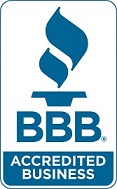CI 520: Crisis Intervention Assessment & Treatment II
AIHCP BLOG: Please visit our interactive web blog. Here you will find frequently added information on our programs, articles and news by practice speciality, and much more. Register and become a part of our professional health care community.
COURSE INFORMATION
This course provides student with information about the current issues as they relate to crisis intervention. It continues with issues examination where course CI 510 left off. Numerous case examples are provided to illustrate the practical application of both assessing and treating the client in crisis. Students will examine assessment models and treatment interventions as related to school crisis, emergency room settings, life-threatening diseases, domestic violence and more. Emphasis of learning will be the application of evidence-based assessment and treatment techniques. Critical thinking skills are applied to case presentations. Course Code: CI 520. Continuing hours of continuing education = 50.
Prerequisites: must have completed CI 500, and CI 510 before enrolling in this course.
Instructor/Course Author: Thomas Schear, Ph.D
Link to Resume
TIME FRAME: You are allotted two years from the date of enrollment, to complete this course as well as all of the courses in the Crisis Intervention Consulting continuing education program. There are no set time-frames, other than the two year allotted time, to complete all of the courses in this program. If you do not complete the course within the two-year time-frame, you will be removed from the course and an "incomplete" will be recorded for you in our records. Also, if you would like to complete the course after this two-year expiration time, you would need to register and pay the course tuition fee again.
TEXTBOOKS: There is one (1) textbook for the course:
Crisis Intervention Handbook: Assessment, Treatment & Research 4th ed. by Albert R. Roberts. Oxford University Press. New York. 2005 ISBN 0190201053.
Link to Purchase on Amazon.com: click here
TEST: The test is based on Parts IV, V, VI.
GRADING: You must achieve a passing score of at least 70% to complete this course and receive the 50 hours of awarded continuing education credit. There are no letter grades assigned. You will receive notice of your total % score. Those who score below the minimum of 70% will be contacted by the instructor at American Institute of Health Care Professionals, Inc. and options for completing additional course work to achieve a passing score will be presented.
Course Refund & AIHCP Policies: access here
BOARD APPROVALS: The American Institute of Health Care Professionals (The Provider) is approved by the California Board of Registered Nurses, Provider number # CEP 15595 for 50 Contact Hours. Access information
This course, which is approved by the Florida State Board Of Nursing (CE Provider # 50-11975) also has the following Board of Nursing Approvals, for 50 contact hours of CE:
The American Institute of Health Care Professionals Inc: is a Rule Approved Provider of Continuing Education by the Arkansas Board of Nursing. CE Provider # 50-11975.
The American Institute of Health Care Professionals Inc: is a Rule Approved Provider of Continuing Education by the Georgia Board of Nursing. CE Provider # 50-11975.
The American Institute of Health Care Professionals Inc: is a Rule Approved Provider of Continuing Education by the South Carolina Board of Nursing. CE Provider # 50-11975.
The American Institute of Health Care Professionals Inc: is a Rule Approved Provider of Continuing Education by the West Virginia Board of Examiners for Professional Registered Nurses. CE Provider # 50-11975.
The American Institute of Health Care Professionals Inc: is a Rule Approved Provider of Continuing Education by the New Mexico Board of Nursing. CE Provider # 50-11975.
Online Classroom Resouces and Tools
* Examination Access: there is link to take you right to the online examination program where you can print out your examination and work with it. All examinations are formatted as "open book" tests. When you are ready, you can access the exam program at anytime and click in your responses to the questions. Full information is provided in the online classrooms.
* Student Resource Center: there is a link for access to a web page "Student Resource Center." The Resource Center provides for easy access to all of our policies/procedures and additional information regarding applying for certification. We also have many links to many outside reference sites, such as online libraries that you may freely access.
* Online Evaluation: there is a link in the classroom where you may access the course evaluation. All students completing a course, must, without exception, complete the course evaluation.
* Faculty Access Information: you will have access to your instructor's online resume/biography, as well as your instructor's specific contact information.
* Additional Learning Materials: some faculty have prepared additional "readings" and /or brief lecture notes to enhance your experience. All of these are available in the online classrooms.
COURSE OBJECTIVES: Upon completion of the course, you will be able to:
- Understanding the implications and application of crisis theory and interventions with battered women and their children.
- Understanding the implications and application of crisis theory and interventions with stalking victims.
- Understanding the implications and application of crisis theory and interventions and solution-focused therapy with addicted clients.
- Understanding the implications and application of crisis theory and interventions with clients experiencing mental health issues.
- Understanding the implications and application of crisis theory and interventions with women who are HIV positive.
- Understanding the implications and application of crisis theory and interventions using animals to assist in the assessment and recovery process.
- Understanding the implications, assessment and application of the development of support services for health care workers.
- Understanding the need for and the provision of support services for caregivers.
- Understanding the model presented for critical and intensive care units in general hospitals.
- Understanding an overview of crisis intervention models.
- Understanding the implications and application of the Crisis State Assessment Scale.
- Understanding the designed and procedures for evaluations crisis intervention.


